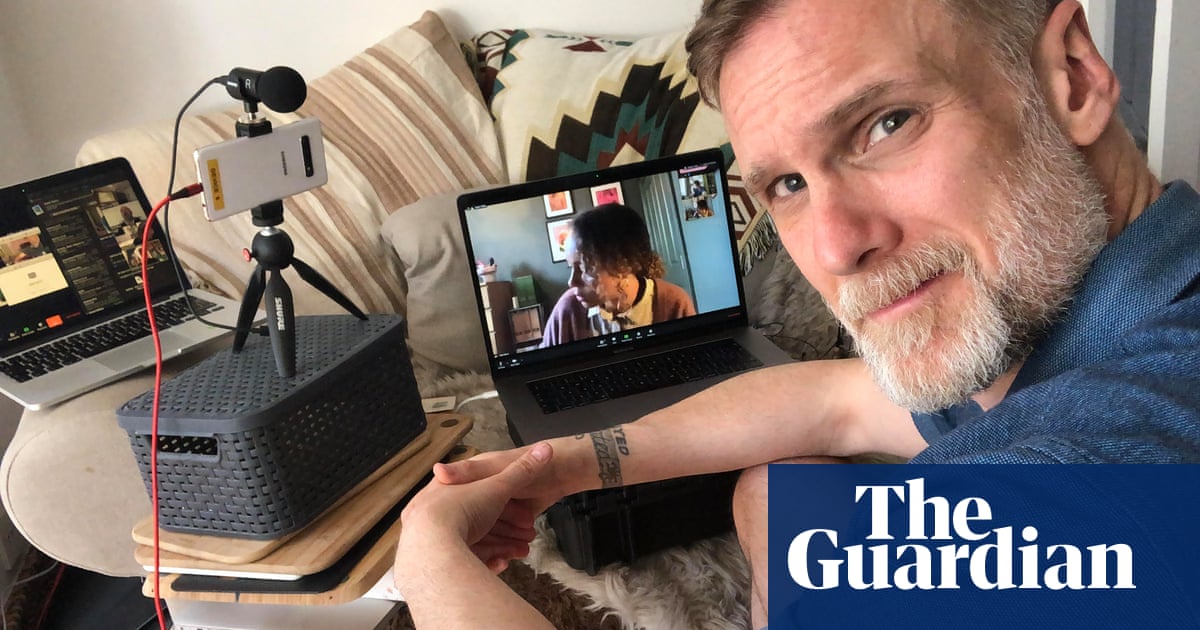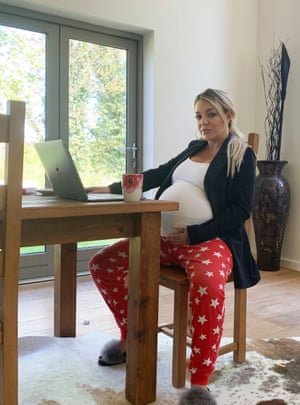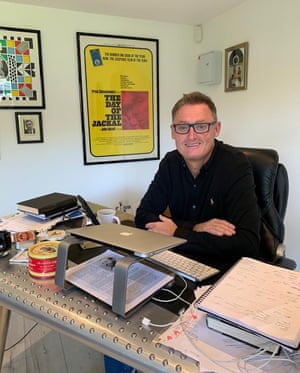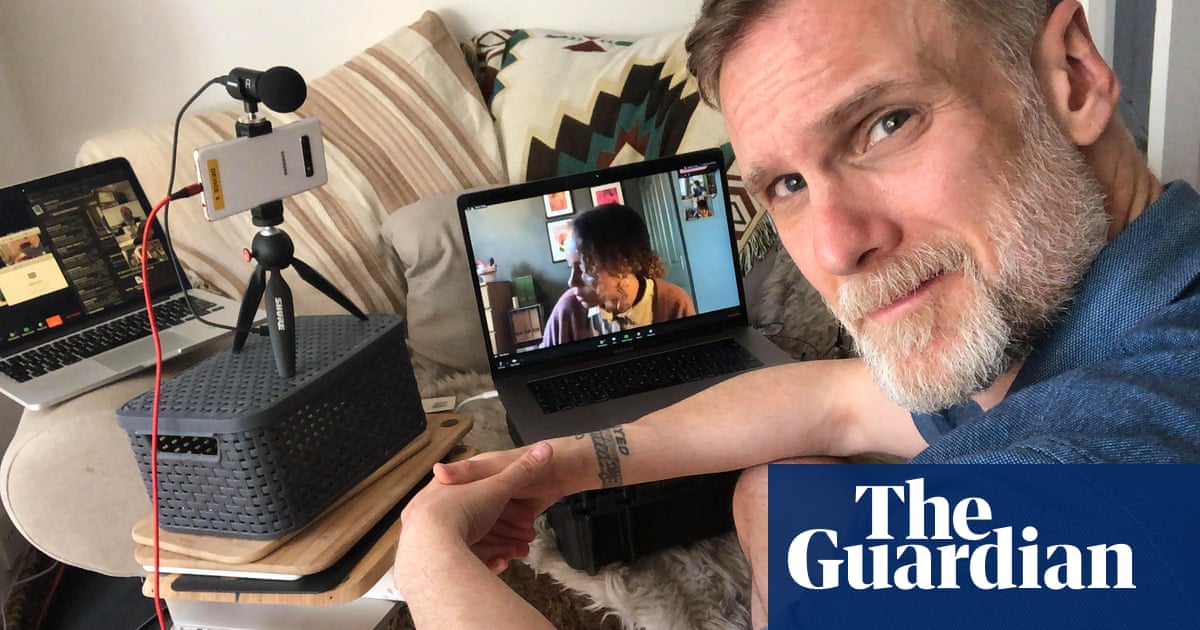ITVs Isolation Stories stars Sheridan Smith and Eddie Marsan, is shot by their family members and was directed via Zoom. Is this the future of TV drama under coronavirus?

Its the strangest casting Ive ever done, says Jeff Pope. I phoned Eddie Marsan and said, Look, I really want you for this. But we need a couple of your kids to be in it as well, and could your wife film it?
The producer, whose award-winning work includes Cilla, Mrs Biggs and A Confession, is talking about a new peak-time ITV drama which is being shot this week at various locations around England. Starring actors including Marsan, Sheridan Smith, David Threlfall and Robert Glenister, it will be screened over four nights from 4 May. But before anyone calls the police, Isolation Stories a quartet of 15-minute mini-dramas is fully compliant with government instructions. The show will go out with almost no one involved having gone outside.
We asked ourselves: how do we do this without breaking the law? explains Pope. So we delivered sanitised filming equipment to the actors at home. They took out the stuff, cleaned it, then we talked them through by phone how to use it.
Among the cultural consequences of the coronavirus pandemic was the shutdown of all British TV drama production. Because fiction, unlike news, is not defined as key media work, the numbers of people, travel and amount of close contact involved in filming were deemed a health risk. Isolation Stories is an attempt to create a drama series within those restrictions. To avoid all of the stories being monologues, Pope swelled some of the casts with relatives quarantined with the dramas stars. And to prevent the films being as visually restricted as selfies, it was also decided to have someone else operating the camera.
So Eddie Marsans wife Janine, by training a makeup artist, is looking through the lens. Smith was filmed by her partner Jamie, who is by trade an insurance broker, but, says Pope, turned out to be a natural director of photography rock-steady moves.

Whereas many actors would be filming other TV dramas now if the sets had not been closed for infection control, Smith could only ever have made this one. I am heavily pregnant and have been isolating at home, she says, so I jumped at the chance to make a drama about the massive drama going on all around us.
In Mel, by Gaby Chiappe, co-writer of the Miss World movie Misbehaviour, Smith brings a dramatic authenticity startling even by her standards to the character of a woman who is eight months pregnant and unable to leave the house.
For Pope, the project also has a personal element. An elderly aunt, unwell with other conditions, caught the bug and died. Pope, his wife and three sons also all suffered the major symptoms of coronavirus, although, in the absence of testing for the general population, cannot be sure they were infected.
My wife was one of the unlucky ones who suffered really badly, he explains. There were two nights when I was sure I was going to have to take her to A&E. Id been told to count the number of breaths per minute because that can be an indicator of how bad it is. I remember standing outside the door and listening because I didnt want her to know I was counting.
That ordeal, transferred to a less happy family home, inspired Popes script, Ron and Russell. A young man is in reluctant and truculent lockdown with his dad, who becomes seriously ill. This was the hardest of the quartet to cast. Because acting is often dynastic, a number of fathers and sons are both Equity members. Within that sub-set, though, the production was restricted to those confined in the same household. Luckily, these included Robert Glenister, who played Ash Morgan in Hustle and the home secretary in Spooks, and Tom Glenister, a recent drama school graduate who has appeared in the crime drama Vera. However, as the family had neglected to contain a qualified camera operator, Celia De Woolf, a radio producer who is Toms mum and Roberts wife, was given a Zoom course in how to use the disinfected camera.
When I spoke to the trio by video during Wednesdays shooting, Celia said she often records radio on location, so is quite used to running a set. But I had no idea how a camera worked – a tilt, a zoom. I do now!
Whats great is working in ones own house, said Robert. You dont have to get up at half five to go to some freezing location. Just get out of bed and get on with it.
You dont even need to get out bed, his wife points out. Because your characters in it.
Has there been any family creative tension? Er, said Celia, looking at her son.
Tom smiled. Weve had hushed firm whispers about the technology. But thats someone of my age assuming they know more about tech than their parents. Ive had to relinquish power and accept this is different from turning the Sky Box on.

Currently unemployed members of the industry may bridle that this system gives a lot of work to non-professional and non-union labour. On a Google Hangout link from the writing shed at the bottom of his garden, Pope smiles. Yes. Were aware of that. But I would point out that qualified and union crew are on hand to advise.
With lighting and makeup experts providing long-distance tips, the main feed from the actors home goes to a monitor at the house of the director, who can communicate with the set through the camera operators earpiece.
When directing ITV series such as Little Boy Blue and White House Farm, Paul Whittington is used to being surrounded by dozens of others. But on Mel, he worked alone. For most of the day I have been up in my loft the quietest spot in my house looking at images relayed from the set which are a bit like Andy Warhol screen prints, all the colours separated. And the sound is intermittent so at times its like trying to direct Norman Collier. But its exciting to be doing something and we are refining the process all the time.
Smith told me, by email during shooting: Its mad sat here in my kitchen with my partner as the cameraman and a load of people in their houses are all trying to talk to us at once move the lights, get her to turn to her left. Its so interesting for us but it must be a nightmare for them.
Neil McKay has written the drama Karen, involving a man whose essential shopping takes him past the house where his estranged son and grandchildren, played by three Marsans, live. Another of the Marsan children is shooting footage for a how-it-was-made documentary that may also be screened on ITV.
McKays usual work, such as the Fred West drama Appropriate Adult and The Moorside, usually take two to three years of research, writing and shooting. But, with this, he notes, its two or three weeks. So the immediacy of it is astonishing.
Unlike his character, McKay is a regular and loving visitor to grandsons who live nearby, at least he was until lockdown restricted family interaction. The writer says: On my daily walk or bike ride, I pass their house but now cant go in. So, if theyre at the window, I do a bit of Michael Flatley Irish dancing or run up and pretend to bowl a cricket ball at them. So I had the idea of a relative who isnt allowed to come in. Which is both poignant and comic.
During his permitted daily act of exercise, the writer was also struck by how the current emergency has effectively killed the whisper: Ive observed people talking to each other across the lawn or road, rather than over the fence or across a pub or kitchen table. But whereas, in those circumstances, people lean in and lower their voice for intimate details, people are now proclaiming them across two metres, yelling: Ive got to have my prostate out! Everyone sounds as if theyre in a West End play.
The fourth play, written by William Ivory, is an emergency online therapy session between Mike (Darren Boyd) and his psychiatrist Rochelle (Angela Griffin). The positions of patient and shrink switch, says Pope.
A complication for all four dramas was what Pope calls the legal, but also moral necessity of not breaking the lockdown rules in any way. McKays script is the only one to feature action outside a house. ITVs lawyers ruled that this element could be justified as the actor playing Grandad, David Threlfall, was travelling, within London, to do work that was not possible at home.
McKays script also scrupulously complies with the regulations because of the premise that the character cant go inside. But, as the drama takes place over a number of days, Threlfall will need to change costumes under a blanket in his car. And there may Pope has realised ahead of filming later this week be a further complication: It has struck me that I hope David Threlfall doesnt need to use a loo. Because he cant go into the Marsans house. So, strictly, hed have to drive back to his house, and then come back again. But lets hope it doesnt get to that.
Next week, the directors will edit the films at their homes, then send them to post-production technicians also working in isolation. It just bounces around virtually between all these houses, says Pope, and then its transmitted. The weirdest thing is that these will go out on ITV without any of the crew having met.
Although TV is a relatively young medium, most types of drama are many decades old. But these family-made shorts are a completely new form, born of emergency. McKay says: Im sure, in due course, normal service will be resumed, and Lord Fellowes will be making his costume dramas again. But, in the short term, travelling light and improvising is going to have to be the way.
Pope reflects: We cant be sure that every shot will be pin-sharp. But, whatever technical imperfections there may be, I hope people are going to cut us some slack for having a go. There will be a big factual drama at some point maybe Ill take it on, or one of the others who do this kind of thing which will try to make sense of all this. But that will probably be in two or three years. In the meantime, there are these little stories that process this experience.
Isolation Stories screens nightly on ITV, 4-7 May.


Recent Comments